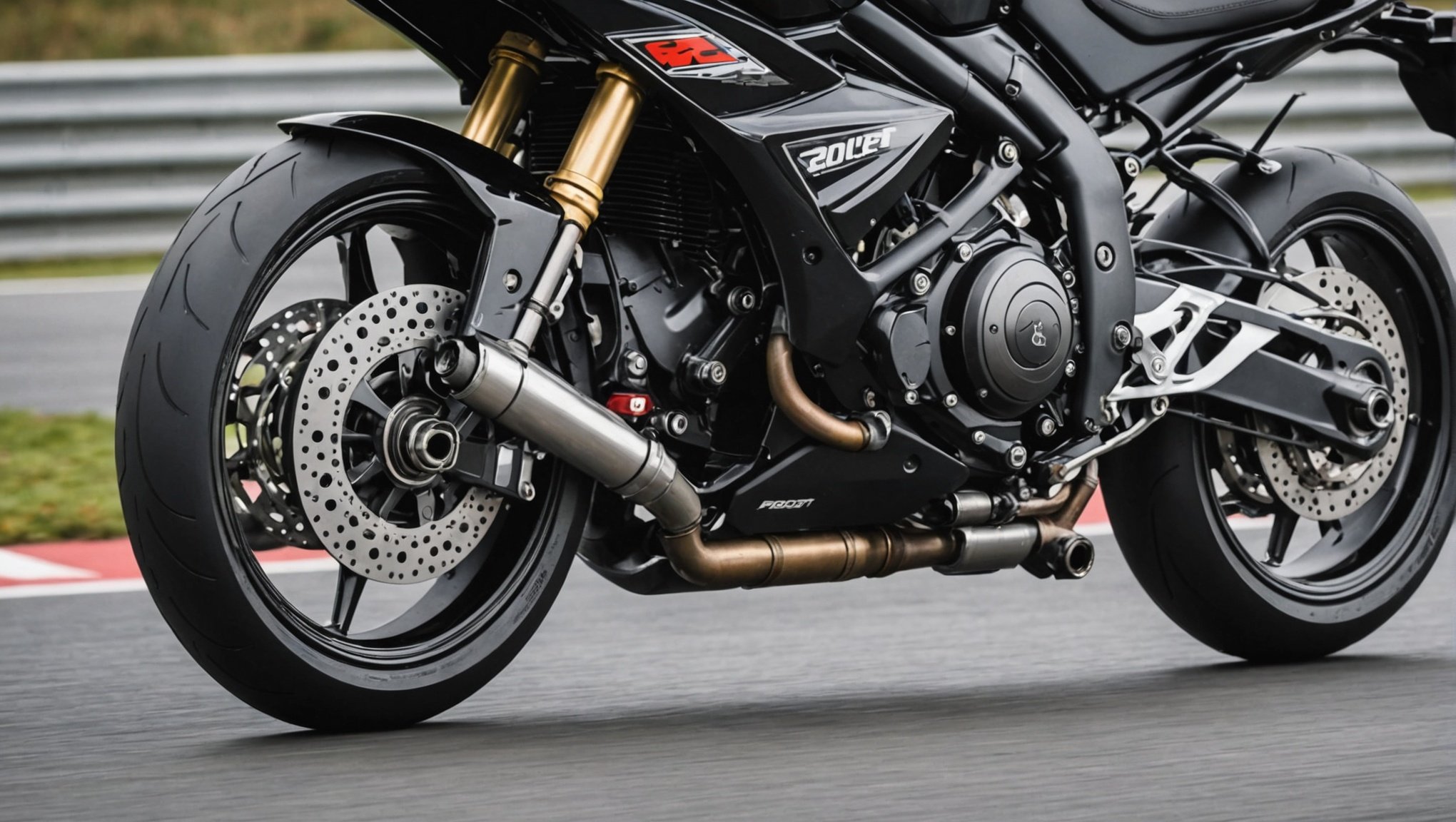Upgrading your sport bike's clutch can significantly impact performance and lap times. This modification enhances throttle response and grip, resulting in smoother cornering and quicker acceleration. However, the benefits vary based on riding style and bike setup. Exploring the intricacies of clutch design will empower you to make informed decisions about optimizing your machine. Are you ready to unlock your bike's full potential and improve your performance on the track? Let's delve into how a clutch upgrade could elevate your lap times.
Overview of Clutch Upgrades for UK Sport Bikes
Clutch upgrades are essential modifications aimed at enhancing sport bike performance. In racing scenarios, the clutch plays a pivotal role in determining how power is transferred from the engine to the wheels, directly impacting lap time improvement. Ensuring optimal clutch performance can mean the difference between victory and defeat on the racetrack.
Additional reading : Transform Your Sport Bike’s Suspension: Ultimate Guide to Perfecting Setup for UK Track Days
There are several types of clutch upgrades available for sport bikes, each designed to address specific performance needs. Slipper clutches are popular among racers as they prevent rear-wheel lock-up during aggressive downshifting, allowing for smoother cornering and improved control. Performance clutch kits, on the other hand, offer enhanced friction materials and stronger springs, providing a more robust engagement and reducing slippage under high power loads.
Additionally, hydraulic clutch conversions can replace traditional cable systems, offering smoother and more consistent clutch operation. These upgrades not only improve the feel and feedback of the clutch lever but also reduce the effort required to operate it, which is crucial during long races.
Have you seen this : Unlocking Speed: Mastering Aerodynamic Enhancements for Your Sport Bike in UK High-Speed Racing
Investing in the right clutch upgrade can significantly enhance a sport bike's performance, providing riders with the competitive edge needed to achieve faster lap times.
Benefits of Clutch Upgrades
Clutch upgrades offer significant performance benefits for sport bikes, especially in racing contexts. One of the primary advantages is enhanced power transfer. By optimizing how power is delivered from the engine to the wheels, riders experience improved responsiveness, crucial for competitive racing. This improved power transfer allows for quicker acceleration, giving riders a noticeable racing advantage.
Additionally, clutch upgrades enhance acceleration and cornering capabilities. With smoother and more efficient engagement, riders can accelerate out of corners with greater confidence and speed. This is particularly beneficial in racing scenarios where every second counts. The ability to maintain control and stability during aggressive maneuvers can lead to improved lap times and a competitive edge.
Moreover, upgrading the clutch system can lead to a reduction in wear and tear on stock components. Stock clutches are often not designed to withstand the high demands of racing. By investing in upgraded components, riders can ensure their bike's clutch system is more durable and reliable. This not only prolongs the lifespan of the clutch but also reduces the risk of mechanical failures during critical moments on the track.
Expert Opinions on Clutch Upgrades
Understanding the nuances of clutch upgrades can be greatly enhanced by insights from those who live and breathe the sport. Expert analysis often highlights the transformative impact of these modifications on performance tuning, offering a deeper understanding of their benefits.
Insights from Professional Riders
Professional riders frequently share their experiences with clutch upgrades, emphasising how these modifications improve their competitive edge. Many riders testify that enhanced clutch performance allows for better control and faster acceleration, which is critical in high-stakes races. Their testimonials reinforce the value of investing in quality clutch components.
Mechanic Perspectives on Clutch Performance
Mechanics provide invaluable insights into clutch performance, focusing on the technical aspects of upgrades. They often stress the importance of selecting the right clutch system to match the bike’s specifications and the rider’s style. Their expertise ensures that the upgrades not only enhance performance but also maintain the bike’s reliability.
Industry Trends in Clutch Technology
The clutch technology landscape is continually evolving, with manufacturers introducing innovative materials and designs. Trends indicate a shift towards lighter, more durable components that offer superior friction and heat resistance. Staying informed about these advancements can help riders make informed decisions about their clutch upgrades.
Cost Analysis of Clutch Upgrades
Understanding the cost implications of clutch upgrades is crucial for riders looking to enhance their sport bikes. Typically, upgrade costs can vary significantly depending on the type and quality of the components. For instance, a basic performance clutch kit might range from £200 to £500, while more advanced systems like slipper clutches can exceed £1,000.
When considering an upgrade, it's essential to weigh the cost versus performance benefits. While high-quality components may require a larger initial investment, they often deliver superior performance enhancements, such as improved power transfer and reduced wear on the bike's transmission system. This can translate to better racing outcomes and potentially lower long-term maintenance expenses.
However, potential hidden costs should not be overlooked. Installation fees can add to the overall expense, especially if professional assistance is required. Additionally, some upgraded systems may necessitate more frequent maintenance to ensure optimal performance. Riders should factor these considerations into their budget to ensure they achieve the best value for money. By carefully evaluating these aspects, riders can make informed decisions that align with their performance goals and financial constraints.
Installation Tips and Best Practices
When considering a clutch installation for your sport bike, it's important to weigh the benefits of a DIY approach against hiring professional services. A step-by-step guide can make the installation process more manageable for those with mechanical skills.
Step-by-Step Guide for DIY Installation
- Preparation: Begin by gathering all necessary tools and components. Ensure you have a clean workspace and the bike is stable.
- Disassembly: Remove the clutch cover and disengage the old clutch system. Pay attention to the order of parts for reassembly.
- Installation: Carefully install the new clutch, ensuring all components are aligned correctly. Follow the manufacturer's instructions closely.
- Testing: Once installed, test the clutch in a controlled environment to ensure proper function.
When to Seek Professional Help
If you lack confidence in your mechanical skills or encounter complex issues, consider seeking professional assistance. Experts can ensure the clutch is installed correctly, preventing potential damage.
Common Mistakes to Avoid
- Ignoring Manufacturer Guidelines: Always adhere to the instructions provided.
- Improper Alignment: Misaligned components can lead to premature wear.
- Neglecting Test Runs: Failing to test the clutch post-installation can result in performance issues.
Regulations and Considerations for UK Racing
Navigating racing regulations is crucial for sport bike enthusiasts looking to modify their clutches. In the UK, these regulations ensure that all modifications, including clutch upgrades, align with safety and performance standards. Compliance with these rules is not only essential for race eligibility but also for maintaining a fair competitive environment.
Overview of UK Racing Regulations
UK racing bodies have specific guidelines regarding sport bike modifications. These rules dictate the types of clutch upgrades allowed and ensure modifications do not compromise safety. For instance, while slipper clutches are often permitted, they must meet certain specifications to be eligible for competition.
Impact on Race Eligibility
Failing to comply with racing regulations can result in disqualification. It's essential to verify that any clutch modification aligns with the specific rules of the racing league. This ensures the bike remains eligible to compete, preventing any last-minute surprises on race day.
Importance of Compliance
Adhering to compliance requirements is vital for both safety and performance. Properly regulated modifications not only enhance a bike's capabilities but also ensure it operates safely under race conditions. This balance is key to achieving optimal performance while adhering to the rules.













